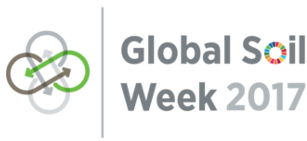by Andrea Koch, Alex McBratney, Mark Adams, Damien Field, Robert Hill, John Crawford, Budiman Minasny, Rattan Lal, Lynette Abbott, Anthony O’Donnell, Denis Angers, Jeffrey Baldock, Edward Barbier, Dan Binkley, William Parton, Diana H. Wall, Michael Bird, Johan Bouma, Claire Chenu, Cornelia Butler Flora, Keith Goulding, Sabine Grunwald, Jon Hempel, Julie Jastrow, Johannes Lehmann, Klaus Lorenz, Cristine L. Morgan, Charles W. Rice, David Whitehead, Iain Young, Michael Zimmermann
Abstract
Soil degradation is a critical and growing global problem. As the world population increases, pressure on soil also increases and the natural capital of soil faces continuing decline. International policy makers have recognized this and a range of initiatives to address it have emerged over recent years. However, a gap remains between what the science tells us about soil and its role in underpinning ecological and human sustainable development, and existing policy instruments for sustainable development. Functioning soil is necessary for ecosystem service delivery, climate change abatement, food and fiber production and fresh water storage. Yet key policy instruments and initiatives for sustainable development have under-recognized the role of soil in addressing major challenges including food and water security, biodiversity loss, climate change and energy sustainability. Soil science has not been sufficiently translated to policy for sustainable development. Two underlying reasons for this are explored and the new concept of soil security is proposed to bridge the science–policy divide. Soil security is explored as a conceptual framework that could be used as the basis for a soil policy framework with soil carbon as an exemplar indicator.
For the Wiley Online Library entry, please click here →
